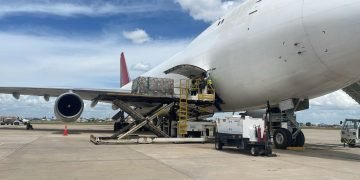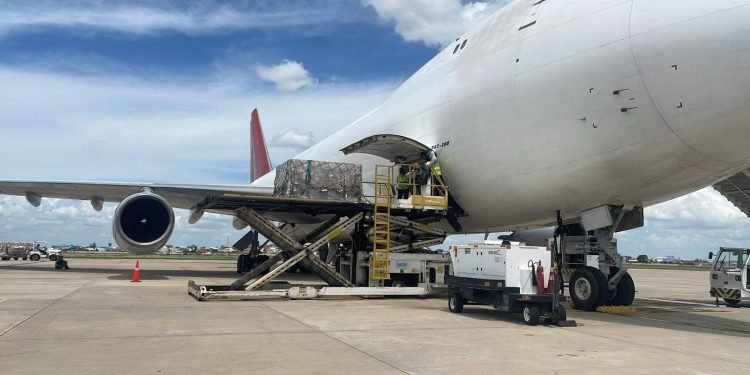By Maria Kalamatas | August 7, 2025
Bangkok, August 7 —
In a swift response to escalating border clashes between Thai and Cambodian forces, freight forwarders have turned to emergency air charter services to keep critical supply chains alive across Southeast Asia.
“We’ve seen an overnight increase of over 60% in charter requests to reroute time-sensitive cargo stuck near the border,” said Thanat Srisuwan, operations director at Bangkok-based SkyBridge Logistics. “The only viable solution right now is the sky.”
❚ Sudden escalation disrupts cross-border freight
On Tuesday evening, the key Poipet-Aranyaprathet border checkpoint was abruptly shut following military tensions that flared into active skirmishes. Regular truck lanes, which handle over 300 cargo vehicles daily, are now blocked, leaving perishable goods, electronics, and medical supplies stranded.
Regional manufacturers, especially in the textile and automotive sectors, are scrambling to avoid costly delays. Logistics companies across Thailand, Cambodia, and Vietnam are mobilizing regional air cargo capacity to divert stock through secondary airports in Udon Thani and Phnom Penh.
❚ Ad hoc solutions under pressure
Freight brokers reported that available narrow-body freighters in the region were booked within hours, prompting a surge in demand for wide-body charters out of Suvarnabhumi Airport.
“We’re converting passenger belly space and repositioning empty flights from Singapore and Kuala Lumpur to meet demand,” confirmed Lee Tze Hao, regional air cargo planner at JetWings Asia.
Rates have reportedly jumped by up to 40% in 24 hours, particularly for routes into Vietnam and southern China.
❚ Fragile resilience of regional logistics
The unexpected conflict has reignited concerns over the fragility of overland trade corridors in politically tense zones. Analysts point to the ASEAN Logistics Connectivity Framework as needing urgent review to include faster contingency frameworks, especially for small and medium freight operators.
Thailand’s Ministry of Commerce issued a brief statement calling for de-escalation and indicating that cross-border truck permits will be suspended “until the situation stabilizes.”
❚ What’s next?
The crisis offers a real-time stress test of air freight’s role in disaster logistics across Southeast Asia — one that many operators hope won’t extend for long.























